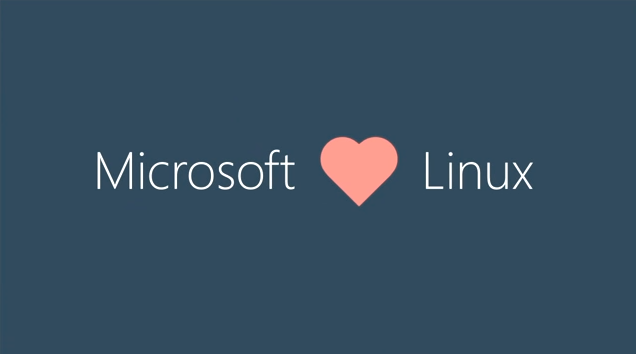Posts
5044Following
330Followers
504OpenPGP: 3AB05486C7752FE1
Jarkko Sakkinen
jarkko
Edited 1 year ago
While making a track for Random Records [1] compilation I've noticed one and dumb and simple workflow improvement: for drum sounds hosted by a sampler in their own tracks it is best to keep key-tracking off.
Then the MIDI note values are free for Note Grid and for plugins like Effectrix 2. Saves tons of time because then no separate MIDI track is needed for triggering the effect.
[1] https://randomrecords.bandcamp.com/ #bitwig
Then the MIDI note values are free for Note Grid and for plugins like Effectrix 2. Saves tons of time because then no separate MIDI track is needed for triggering the effect.
[1] https://randomrecords.bandcamp.com/ #bitwig
Jarkko Sakkinen
jarkko
I mean if you money to pay for ext2 driver that we actually even don't need, you certainly have money to sponsor GCC.
Jarkko Sakkinen
jarkko
It can be interpreted as an action where these companies try to purposely cause a toolchain lock-in. Not sure if that is even aligned with CoC. Please stop doing that.
Jarkko Sakkinen
jarkko
Edited 1 year ago
Here's something I don't understand: ext2 driver in Rust. Frankly, I just don't get why Microsoft spends money on stuff like that.
Ok, so here's something I WOULD get (assuming that it compiles with GCC because it is a hard constraint): re-write user space interaction points of ext4 driver in Rust and make it call the existing internals.
Then I'd have a patch at hand that is written in Rust and that makes a modest improvement for the sake of better security, i.e. something I can *measure*.
I really try to avoid thinking of liking or disliking patch. If I can measure an improvement that overrides the possible drawbacks, then I see no other choice than carry the patch forward.
Ok, so here's something I WOULD get (assuming that it compiles with GCC because it is a hard constraint): re-write user space interaction points of ext4 driver in Rust and make it call the existing internals.
Then I'd have a patch at hand that is written in Rust and that makes a modest improvement for the sake of better security, i.e. something I can *measure*.
I really try to avoid thinking of liking or disliking patch. If I can measure an improvement that overrides the possible drawbacks, then I see no other choice than carry the patch forward.
Jarkko Sakkinen
jarkko
Edited 1 year ago
@jani I look mainly at the data. Firefox at 20% (2017-2024) now. Based on that my rough guess would be that within 5-7 years timeline we have 20% * 0.1 (complexity factor out of top of my head) = 2% of code that is in some defconfig. That is probably also about the time needed to GCC-Rust to catch up, which is literally a hard constraint because a defconfig's need to compile only with a GCC toolchain.
I don't think making Linux clang only would ever receive a positive response. Why I see defconfig level adoption happening in a longer timeline is that in input validation and all kinds of syscall/uapi layer stuff Rust adoption would have undebatable benefits.
I believe I have fairly weighted argument. I've used professionally Rust in user space code since 2022 (and actual low-level stuff like memory manager for Intel SGX enclaves), which I believe gives some basis also for my guess.
Like AI, blockchains, pick-your-hype-tech it is IMHO both uneducated to say that they are a hoax, and also that they solve every possible problem.
I don't think making Linux clang only would ever receive a positive response. Why I see defconfig level adoption happening in a longer timeline is that in input validation and all kinds of syscall/uapi layer stuff Rust adoption would have undebatable benefits.
I believe I have fairly weighted argument. I've used professionally Rust in user space code since 2022 (and actual low-level stuff like memory manager for Intel SGX enclaves), which I believe gives some basis also for my guess.
Like AI, blockchains, pick-your-hype-tech it is IMHO both uneducated to say that they are a hoax, and also that they solve every possible problem.
Jarkko Sakkinen
jarkko
OK, now we can safely cross over "quantum computers will break all the crypto" apocalypse scenario. I'd predict that "AI will take all our jobs" will be next on the list (to be crossed over).
Jarkko Sakkinen
jarkko
NIST's post-quantum key exchange algorithm is called "CRYSTALS-Kyber" 🤣 I guess NIST also has had a "brat summer". #NIST #cryptography #quantum
Jarkko Sakkinen
 repeated
repeated
Fedi.Tips 🎄
FediTips@social.growyourown.servicesYou can use Mastodon on many retro computer systems:
 Apple II - https://www.colino.net/wordpress/en/mastodon-for-apple-ii
Apple II - https://www.colino.net/wordpress/en/mastodon-for-apple-ii
 Apple Macintosh (pre-OS X) - https://github.com/smallsco/macstodon
Apple Macintosh (pre-OS X) - https://github.com/smallsco/macstodon
 Commodore 64 - https://github.com/Havoc6502/MOStodon
Commodore 64 - https://github.com/Havoc6502/MOStodon
 Commodore Amiga - https://github.com/BlitterStudio/amidon
Commodore Amiga - https://github.com/BlitterStudio/amidon
 MS-DOS - https://github.com/SuperIlu/DOStodon
MS-DOS - https://github.com/SuperIlu/DOStodon
 MVS - https://github.com/mainframed/BREXXTODON
MVS - https://github.com/mainframed/BREXXTODON
 Palm OS - https://github.com/knickish/heffalump
Palm OS - https://github.com/knickish/heffalump
 Windows 95 - https://github.com/meyskens/mastodon-for-workgroups
Windows 95 - https://github.com/meyskens/mastodon-for-workgroups
Jarkko Sakkinen
jarkko
@hgfernan So for example:
https://openhub.net/p/firefox/analyses/latest/languages_summary
Native ("non-XUL") code covers 49.1% so Rust's share is slightly better but I think I got it roughly correct ;-)
https://openhub.net/p/firefox/analyses/latest/languages_summary
Native ("non-XUL") code covers 49.1% so Rust's share is slightly better but I think I got it roughly correct ;-)
Jarkko Sakkinen
jarkko
If I get a toxic response I imagine myself as being in a customer service. They get worse shit EVERY single day. It's good to actually think your reactive mindset BEFOREHAND you are in a situation where someone gets into your nerves.
Jarkko Sakkinen
jarkko
Accepting the reality, breathing once in a while (instead of holding your breath all the time) and thinking that you are doing a long journey instead of a fast track would be in my opinion the signs of sanity when it comes to "community friction" ;-)
If getting frustrated that it might be even a good idea to write your own OS from scratch or something similar, and take a break from Linux. There's bunch of fostering work in that area especially when it comes to special purpose OS's. It's good for Linux too since all the innovation for any operating system will reflect innovation to other operating systems.
I personally have phases in Linux and that way keep hanging in the community. Right now I don't do much active development but still review and test patches and stuff like that. My implementation efforts are completely elsewhere (should finish hardware backed asymmetric keys tho some day, last update for that patch set in April ;-) ).
This way any Linux madness does not get into me too personally: I have other nolife too ;-)
If getting frustrated that it might be even a good idea to write your own OS from scratch or something similar, and take a break from Linux. There's bunch of fostering work in that area especially when it comes to special purpose OS's. It's good for Linux too since all the innovation for any operating system will reflect innovation to other operating systems.
I personally have phases in Linux and that way keep hanging in the community. Right now I don't do much active development but still review and test patches and stuff like that. My implementation efforts are completely elsewhere (should finish hardware backed asymmetric keys tho some day, last update for that patch set in April ;-) ).
This way any Linux madness does not get into me too personally: I have other nolife too ;-)
Jarkko Sakkinen
jarkko
Firefox has been using Rust since 2017 and about fifth of its code that was previously in C/C++ has been written in Rust (see Oxidation sub-project).
I'd expect slower cycle for Linux than Firefox. I think this would be likely truth for operating system with decades of legacy (e.g. BSD derivatives).
This makes me think that making any conclusions after two years is simply not a pragmatic mindset.
#rust #linux #kernel
I'd expect slower cycle for Linux than Firefox. I think this would be likely truth for operating system with decades of legacy (e.g. BSD derivatives).
This makes me think that making any conclusions after two years is simply not a pragmatic mindset.
#rust #linux #kernel
Jarkko Sakkinen
jarkko
Edited 1 year ago
Designing such game to be played e.g. at the preliminary school would allow students to draw a realistic picture of AI going forward. You get shit once you get the machinery.
Jarkko Sakkinen
jarkko
@Aissen Very cool and interesting project! Another I had no even slight idea of.
Having worked with RISC-V for over past year or so (and continuing to do so albeit as byte code in PolkaVM), at this point of time I don't have a lot of faith in it when it comes to "with MMU" use cases.
This has made me hope that OpenMIPS would get some air under its wings (commercially) in such use cases both because RISC-V does not really deliver in that area, and secondly because competition would enforce it to deliver. Maybe there is also just some plain love for its legacy (SGI, Playstation 2, Nintendo 64 for etc) ;-)
Having worked with RISC-V for over past year or so (and continuing to do so albeit as byte code in PolkaVM), at this point of time I don't have a lot of faith in it when it comes to "with MMU" use cases.
This has made me hope that OpenMIPS would get some air under its wings (commercially) in such use cases both because RISC-V does not really deliver in that area, and secondly because competition would enforce it to deliver. Maybe there is also just some plain love for its legacy (SGI, Playstation 2, Nintendo 64 for etc) ;-)
